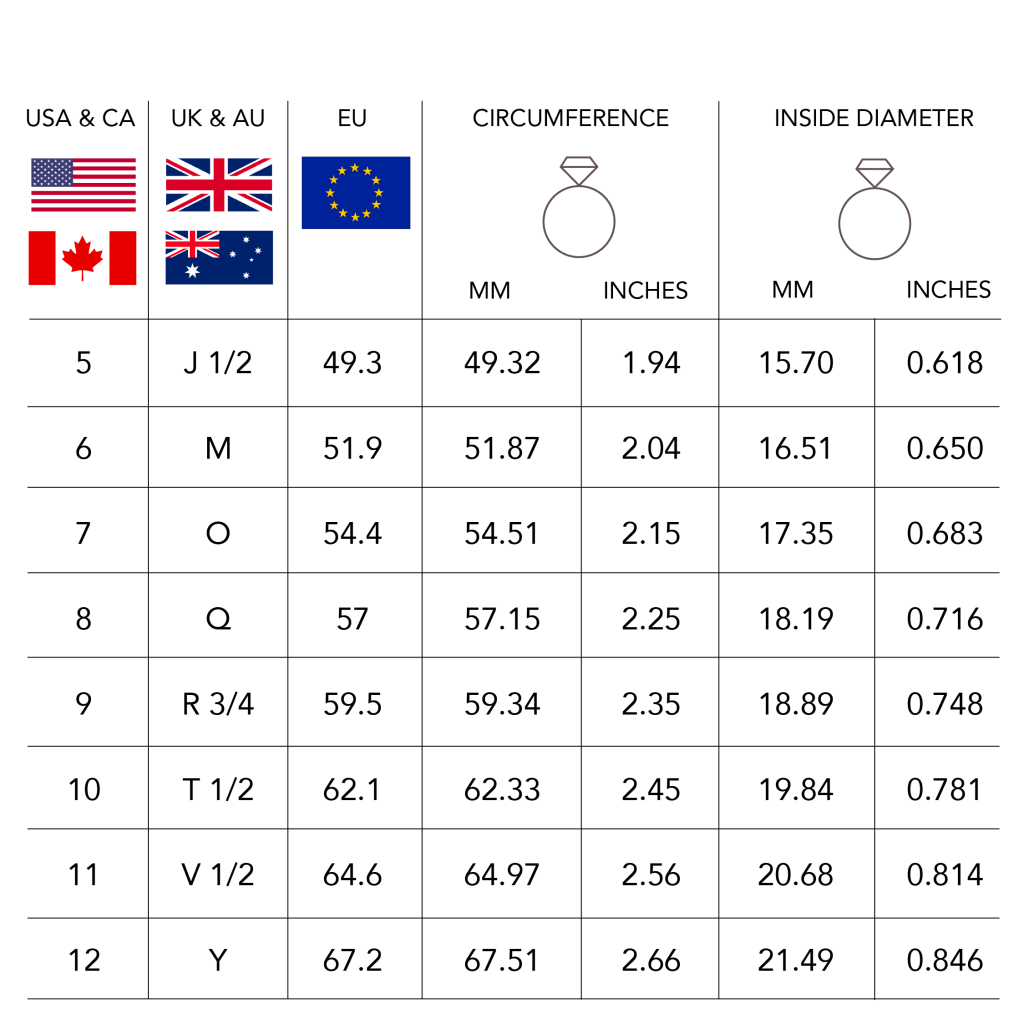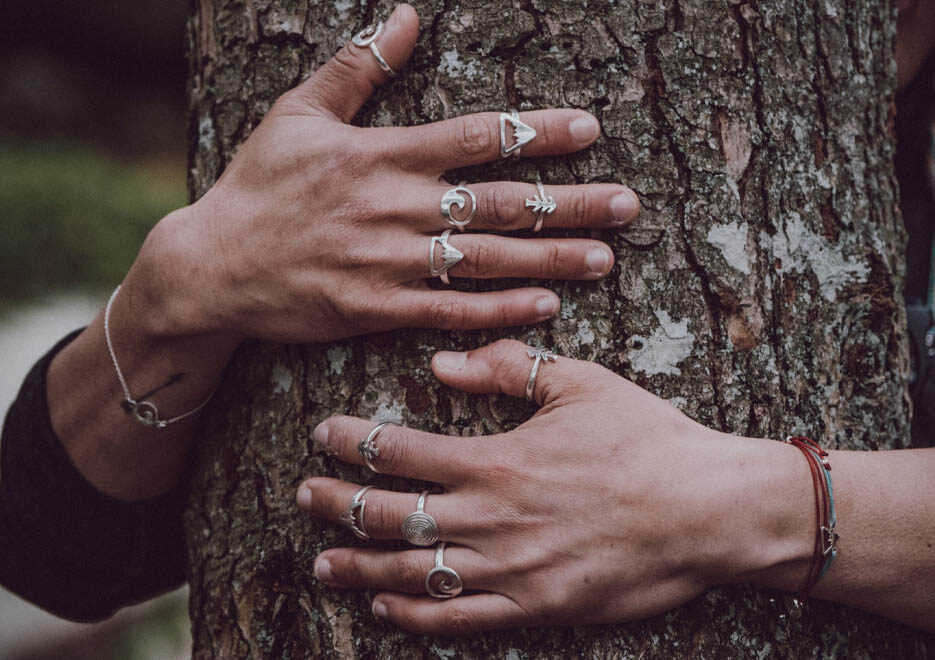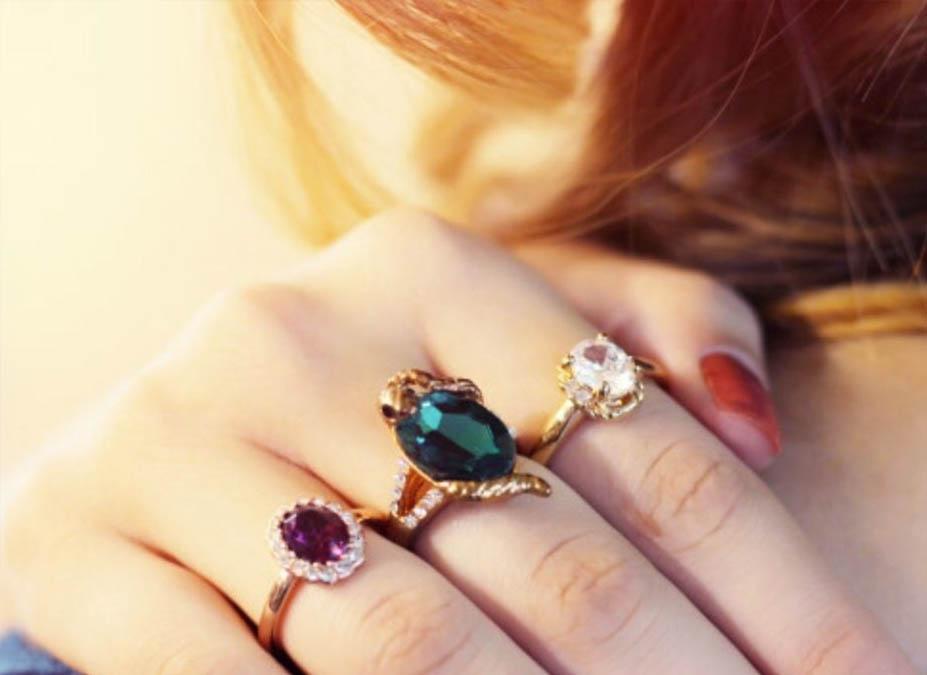Whether you’re planning to surprise your significant other with a sparkling diamond, looking to expand your personal collection, or seeking to craft your own custom design, understanding your ring size is absolutely crucial. But, what if you can’t get to a jeweler? Fret not! We’ll reveal some trade secrets on how to accurately check your ring size in the comfort of your own home.
While your ring size may fit perfectly in the U.K., you might find it differs considerably in the U.S. This apparent disparity, however, is easily remedied thanks to handy conversion charts. These tools ensure you can confidently order the correct ring size, irrespective of the country’s sizing standard it adheres to, thus guaranteeing total accuracy.

In the United States and Canada, ring sizes range from 3 to 13, accommodating half and quarter sizes as well. The size of a ring is calculated either by its diameter or its circumference, and these measurements are typically recorded in inches or millimeters. The diameter refers to the internal length of the ring, while the circumference encapsulates the length of the entire band.
When it comes to international ring sizing, the measurement procedure remains the same, but the numbered sizes follow differing scales, which can change from country to country. Interestingly, countries like Australia and the United Kingdom adopt an alphabetical letter sizing system for rings.
Measuring Your Ring Size with String
A piece of string or a strip of paper is an easy way to measure your ring size. Here’s how:
- Cut a small piece of non-stretchy string, or a strip of paper about 100mm long.
- Wrap it around the base of your finger, ensuring it’s snug but not too tight.
- Mark the point where the string or paper overlaps.
- Measure the length from the start of the string/paper to the mark in millimeters with a ruler.
- Compare this measurement with a ring size chart to find your ring size.
Remember, avoid using an elastic or stretchy string as it could give an inaccurate measurement.
Measuring Ring Size with a Ring Size Chart
A ring size chart is a printable tool available online. Here’s how to use it:
- Choose a ring that fits the finger on which you plan to wear your new ring.
- Print out the ring size chart, ensuring that the scale is set to 100%. Otherwise, your printout might be inaccurate.
- Place your ring over the printed circles, matching the inside edge of the ring to the circle closest in size. The circle should align with the inside edge of your ring.
- The size given next to the matching circle is your ring size.
Use a Ring Sizer
A ring sizer is a plastic tool that works like a belt. It’s inexpensive and can be purchased online. Follow these steps:
- Slip the ring sizer onto your finger and adjust it to give a comfortable fit.
- Make sure it slips back off your finger without difficulty.
- The number aligned with the ‘Read Size Here’ arrow point is your ring size.
Ring Size Guide
A ring size guide involves using an existing ring and a ruler:
- Select a ring that fits the desired finger.
- Measure the inside diameter of the ring (from one inner edge directly across to the other inner edge) in millimeters.
- Use a ring size conversion chart to translate the diameter measurement into a ring size.
Ring Sizing Tips
- Avoid measuring your fingers when they’re cold, as they might be smaller than usual.
- Measure your finger a few times to ensure accuracy.
- Remember, the ring should fit your finger comfortably; snug enough not to fall off, but loose enough to slide over your knuckle.
Frequently Asked Questions about How to Check Your Ring Size at Home
Knowing your ring size is key when purchasing or designing a piece of jewelry. With these methods, you can easily find your ring size from the comfort of your home. Always remember to measure more than once for accuracy and consider the width and design of the band before making your final decision. Happy ring hunting!

I am a dedicated professional with over 20 years of experience in the field of jewelry repair and restoration. Born and raised in California, I found my passion for the intricacies of jewelry design at a young age when I had the chance to observe a local craftsman at work. Throughout my career, I have specialized in restoring vintage and antique jewelry pieces, bringing them back to their former glory while maintaining their historical integrity. I regularly contribute articles and opinion pieces to a variety of jewelry-focused websites and magazines, sharing my insights and knowledge about jewelry repair techniques, trends, and the cultural significance of various jewelry pieces.




